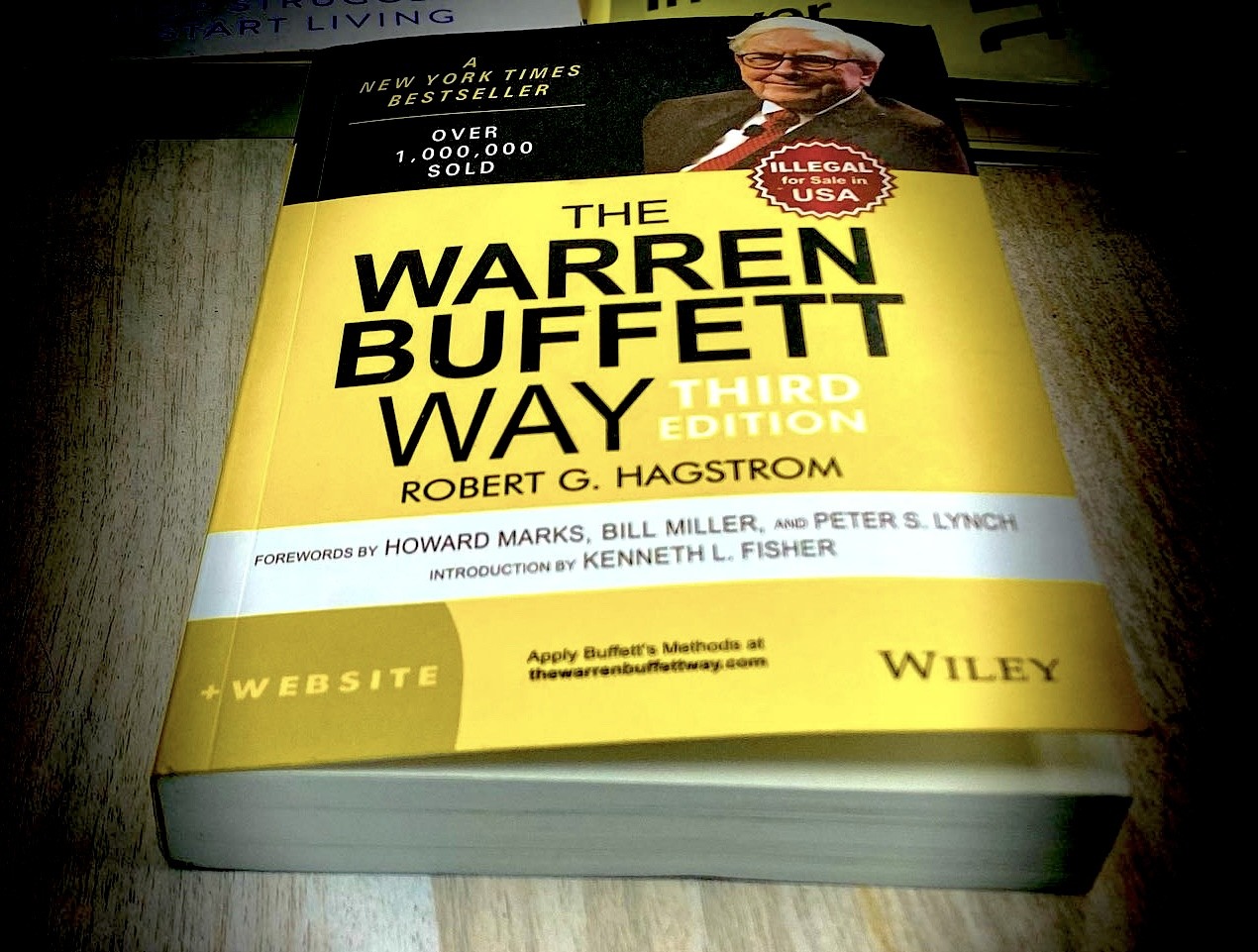Introduction
Warren Buffett is considered by most to be the greatest investor of all time. In The Warren Buffett Way, author Robert Hagstrom distills the essence of Buffett’s strategy into nine simple principles that can be utilized by investors of all levels. The life lessons from the book, though, truly are timeless.
In addition to his own shareholders, Warren Buffett uses the Berkshire annual report to help the general public become better investors. On both sides of his family he descended from newspaper editors, and his Aunt Alice was a public school teacher for more than thirty years. Warren Buffett enjoys both teaching and writing about business in general and investing in particular.

The Warren Buffett Way is a book about investing, written for the investment world. It explores in great detail the nine tenants that Buffett has used in his investment history and explores the nuances of all of the major purchases he’s made over the past fifty-something years. The Book comprises of:
1 The World’s Greatest Investor
2 The Education of Warren Buffett
3 “Our Main Business Is Insurance”: The Early
Days of Berkshire Hathaway
4 Buying a Business
5 Investing Guidelines: Business Tenets
6 Investing Guidelines: Management Tenets
7 Investing Guidelines: Financial Tenets
8 Investing Guidelines: Value Tenets
9 Investing in Fixed-Income Securities
10 Managing Your Portfolio
12 The Unreasonable Man
Use this book to understand Buffett’s ideas and then take those ideas and integrate them into your own approach to investing. It is only from your own ideas that you create greatness.
Summary
The preface of the book focuses on the part that Why Warren Buffett is the wealthiest person on this planet? What is that he has and the rest of us don’t?
The principal challenge the author faced writing The Warren Buffett Way was to prove or disprove Buffett’s claim that “what [I] do is not beyond anybody else’s competence.” Some critics argue that, despite his success, Warren Buffett’s idiosyncrasies mean his investment approach cannot be widely adopted. He disagreed. Warren Buffett is idiosyncratic—it is a source of his success—but his methodology, once understood, is applicable to individuals and institutions alike. His goal in this book is to help investors employ the strategies that make Warren Buffett successful.
Every person who knows him says the same things about him and his qualities are consistent with every other person. He loyal, Patient, Consistent, and risk taker. His analytical skills complements with his passion, which makes it easier for him, as he likes what he does. He is a great student and an even better listener.
Buffett plays by his own rules. He doesn’t follow the crowd nor inspire to do so.
Here are the most important insights studied by the author about Berkshire Hathaway and also about Warren Buffett, during Hagstrom’s 20 years of research:
- Business principle: it consists of evaluating the product or service itself, its quality;
- Management principle: consists of observing who is responsible for the business;
- Financial principle: it consists in projecting the profitable perspective;
- Market principle: consists of estimating the value of the product to buyers
Warren Buffett learned from Benjamin Graham, his Columbia professor and friend, several concepts such as the definition of a safety margin, which is the difference between the value given to an ordinary stock and its intrinsic value which is based on dividends paid, assets, profits and prospects.
According to Hagstrom in his book “The Warren Buffett Way”, the purchase and sale of stocks should occur when these values are attractive. I have to use my own comparative advantages.
Ten years is either a very long time, or not long at all, depending on your circumstances and your personal view of the world. For investors, what we can say is that during these ten years, context has changed but the basics have not. That’s good, because in another ten years the context can change back again, or change in an entirely different direction.
Those who remain grounded in basic principles can survive those upheavals far better than those who do not.
Finally, it can be said that Buffett is patriotic, optimistic, calm, and determined. He values that it is not necessary to have a high IQ to be successful, but it is necessary to persevere and believe in his rational management and honest analysis of the data and facts that are made available to him. Warren Buffett has acquitted himself remarkably—little mud has been thrown at him and none has stuck. A testament indeed. Kipling would be pleased.
Here is a succinct and powerful lesson from the 1996 annual report: “Your goal as an investor should be simply to purchase, at a rational price, a part interest in an easily understood business whose earnings are virtually certain to be materially higher, five, ten, and twenty years from now. Over time, you will find only a few companies that meet those
standards—so when you see one that qualifies, you should buy a meaningful amount of stock.”
His theory is simple – invest in what you know, and know what you know extremely well.
About the Author
- ROBERT G. HAGSTROM is Senior Vice President of Legg Mason Capital Management
- He portfolio manager of the Legg Mason Growth Trust.
- He is a member of the CFA Institute and the Financial Analysts of Philadelphia.
- Robert lives with his family in Villanova, Pennsylvania.




